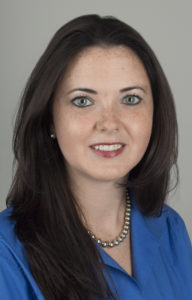Effective ways of teaching and disseminating knowledge have changed rapidly. The current climate of fast, ready-to-go access to information has altered how learners interact with content, and adult learning theories have changed the way content is delivered.

Molly Hayes
Frequently-changing work hour restrictions, shifts in undergraduate medical curricula, and increased demands on attending physicians due to documentation and electronic health record challenges have all contributed to the need for new educational techniques that can keep up with the modern learner.
These and other educational issues will be explored during this morning’s Hot Topics symposium, which will provide participants with up-to-date, evidence-based best practices on how to effectively teach in 2019.
“I think many attendees will have heard about these topics, but what makes our session unique is that we will be offering tangible strategies that participants can take home and implement at their institutions,” said session co-chair Margaret “Molly” Hayes, MD, assistant professor of medicine at Harvard Medical School in Boston.
One Hot Topic will focus on social determinants of health (SDOH), the economic and social conditions that influence the health of people and communities. SDOH, according to the Centers for Disease Control and Prevention, are shaped by the amount of money, power, and resources that people have, and addressing them is a primary approach to achieving health equality.
Hot Topics in Medical Education: What’s New in ’19 (B12)
9:15-11:15 a.m.
Monday
Dallas Ballroom G (Level 3), Omni Dallas Downtown
“Social determinants of health is a hot topic these days with many variations on the definition,” Dr. Hayes said. The presentation will investigate best practices for teaching SDOH, including different frameworks for teaching the concept along with currently available literature.
Another Hot Topic is that of free open access medical (FOAM) education. Does it help or hurt? Presenters will also explore the best use of social media in education and the pros and cons of FOAM education.
“Many people use social media, specifically Twitter, as an educational platform—tweeting out lessons in the form of ‘tweetorials,’ questions with options to respond, and relevant papers with comments,” says Dr. Hayes. “I myself have participated in interactive Twitter chats to mentor people across the country.”
Additional presentations will explore how to use active learning strategies to engage the learner, tips on using asynchronous learning to maximize teaching time, and assessment of competency.
Improving medical education teaching will theoretically improve the way its learners learn, and thus, patients will receive better care, Dr. Hayes says.
“Our goal as educators is to teach in the best way possible, using evidence-based methods where available so that our current trainees, who face many challenges in this modern era, will learn how to take excellent care of patients.”
